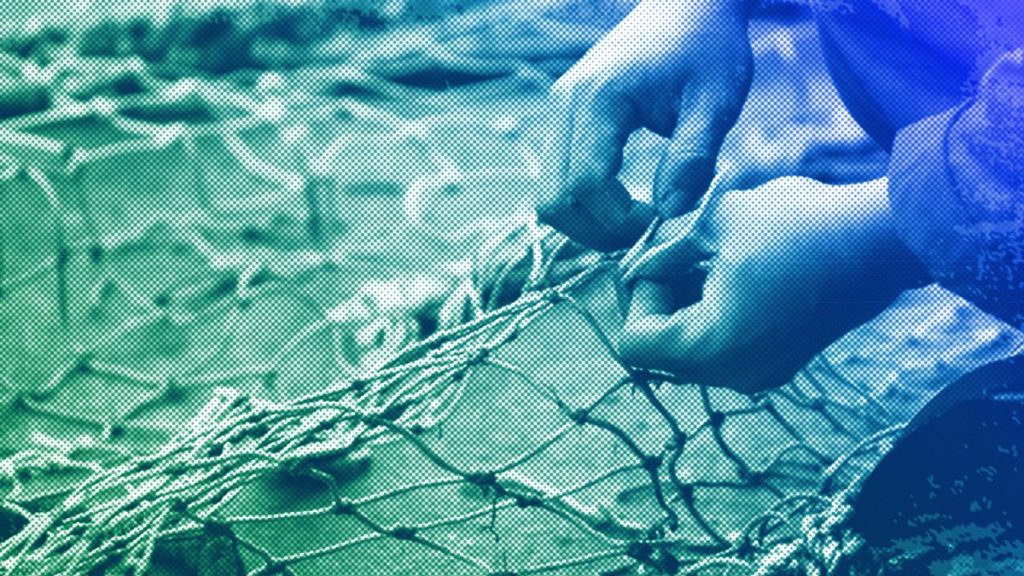The European Commission’s “Fishers of the Future” report presents four potential scenarios for European fisheries by 2050, ranging from optimistic to dire. However, the report’s optimistic projections, which rely on incremental policy adjustments and technological advancements, seem divorced from the current reality of overexploited marine ecosystems and the ongoing damage inflicted by unsustainable fishing practices. The current state of many European fisheries mirrors the report’s worst-case scenarios, with depleted fish stocks, damaged seabeds, and struggling coastal communities. The report’s optimism, based on assumptions of gradual change, ignores the urgent need for drastic action to reverse these trends. Real-world examples, like the community of Thorupstrand in Denmark, demonstrate the devastating consequences of quota privatization and harmful subsidies, which favor industrial fishing operations at the expense of small-scale fishers and environmental sustainability.
The continued practice of bottom trawling, a highly destructive fishing method that scrapes the seabed, exemplifies the disconnect between policy and practice. Despite designated Marine Protected Areas (MPAs), bottom trawling persists, decimating biodiversity and habitats within these supposedly protected zones. The EU’s failure to enforce a ban on bottom trawling within MPAs, coupled with a lack of enforcement of existing regulations, underscores the inadequacy of current policies. Legal challenges brought by environmental groups against several EU member states further highlight the widespread disregard for marine protection and sustainable fishing practices. This inaction jeopardizes the long-term health of marine ecosystems and the livelihoods of those who depend on them.
The failure to effectively manage MPAs not only harms biodiversity and climate resilience but also undermines the economic benefits these areas could provide. Well-managed MPAs, free from destructive fishing, can boost artisanal fisheries, tourism, and recreational activities, contributing significantly to the blue economy. Examples across Europe, such as the Kosterhavet Marine National Park in Sweden and the Os Miñarzos Marine Reserve in Spain, demonstrate the positive socio-economic impacts of effectively managed MPAs. The EU’s blue economy employs nearly 5 million people, highlighting the importance of protecting and restoring marine ecosystems to support these livelihoods. The report’s lack of clarity on the exclusion of small-scale fishers, coastal communities, and NGOs from decision-making processes further exacerbates existing inequalities in resource allocation and access.
The dominance of industrial fleets, often benefiting from the bulk of quotas and subsidies, perpetuates a system that marginalizes traditional fishers and undermines the long-term sustainability of the sector. While the report acknowledges the economic opportunities associated with sustainable practices, it fails to address the economic precarity of many fishers currently struggling under the existing system. The persistence of industrial bottom trawling, despite its economic inefficiency and ecological harm, is largely due to the artificial support it receives through subsidies, including fuel tax exemptions. A comprehensive cost-benefit analysis comparing industrial fishing with low-impact methods is urgently needed to inform policy decisions and redirect financial support towards more sustainable practices.
The next five years represent a critical window of opportunity for the EU to address the crisis facing its fisheries. Immediate action is required to fully enforce the Common Fisheries Policy (CFP), ban bottom trawling in all MPAs, and redirect subsidies towards low-impact fisheries. Failing to implement these crucial measures will accelerate the realization of the worst-case scenarios outlined in the report, jeopardizing the future of European fisheries and the marine environment. The report’s emphasis on incremental change is insufficient to address the urgency of the situation. Bold and decisive action is needed to reverse the trajectory of decline and secure a sustainable future for European fisheries and marine ecosystems.
Sustainable fisheries management has the potential to provide healthy food, support local communities, and protect the marine environment. The EU possesses the necessary tools and regulatory framework to achieve this goal. Where the CFP has been effectively implemented, fish stocks have rebounded, benefiting both the environment and the fishers who rely on them. A prosperous future for European fisheries is still achievable, one where sustainable practices thrive, coastal communities are empowered, and ocean ecosystems are restored. Policymakers must commit to this vision today, recognizing the urgency of the situation and taking decisive action to prevent further ecological and economic damage. Ignoring the realities of the current crisis will only lead to further decline and jeopardize the future of European fisheries.














